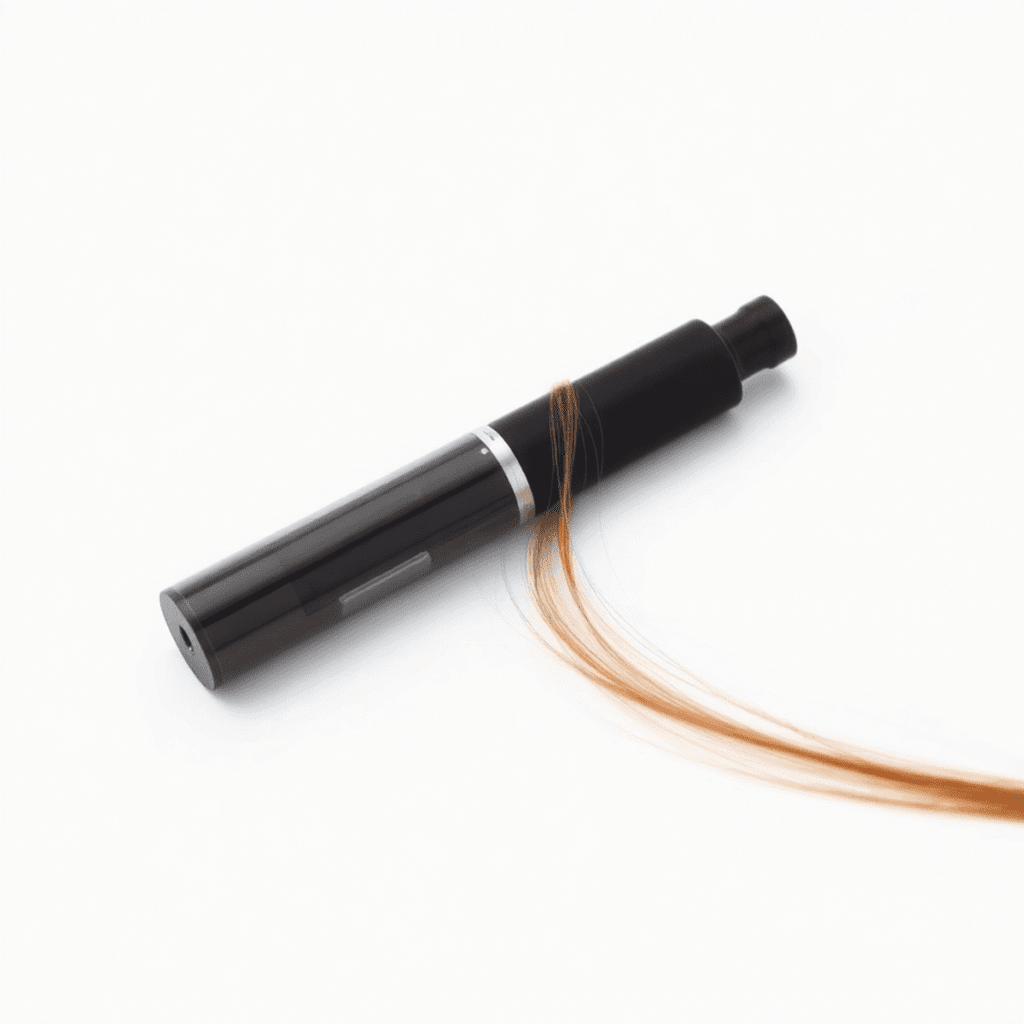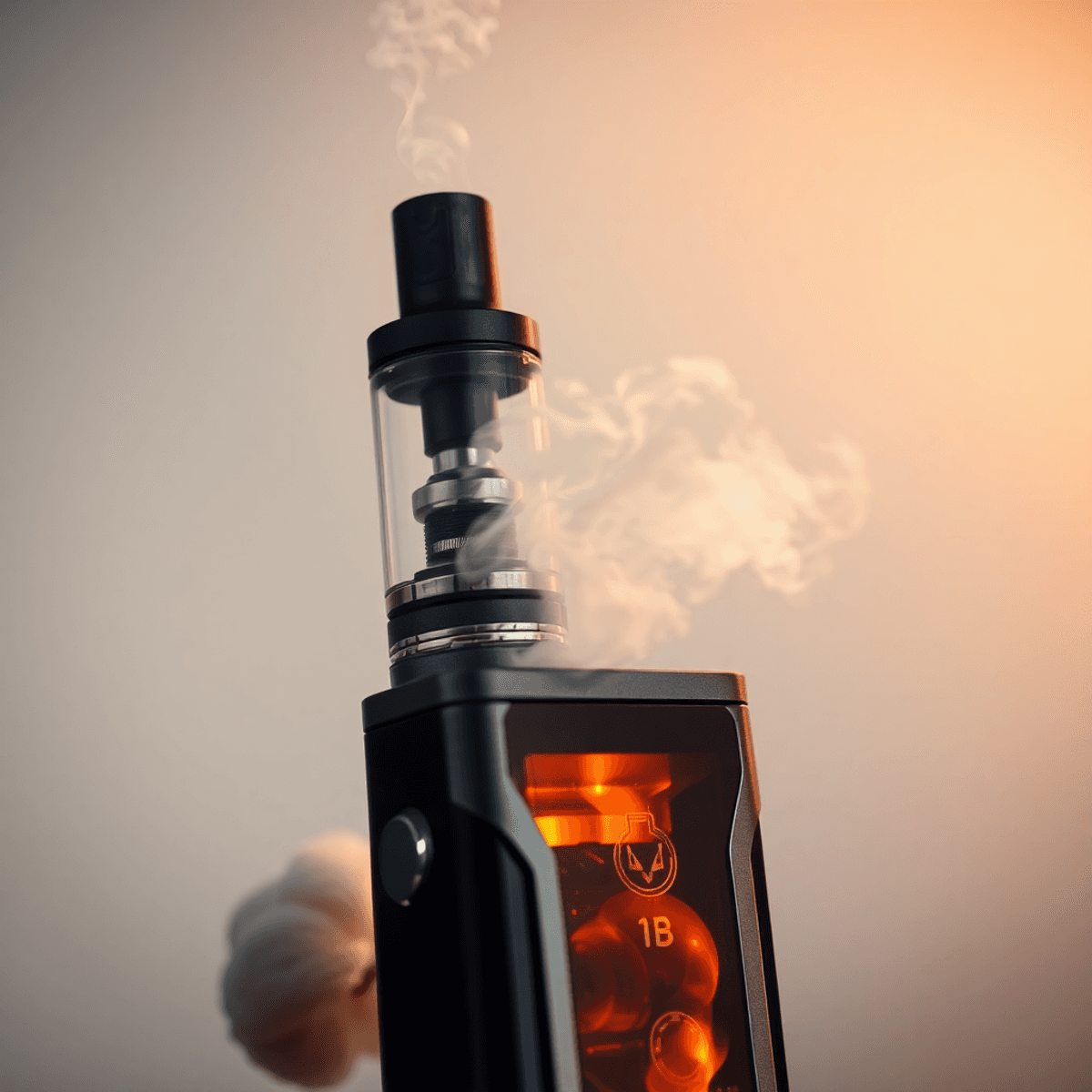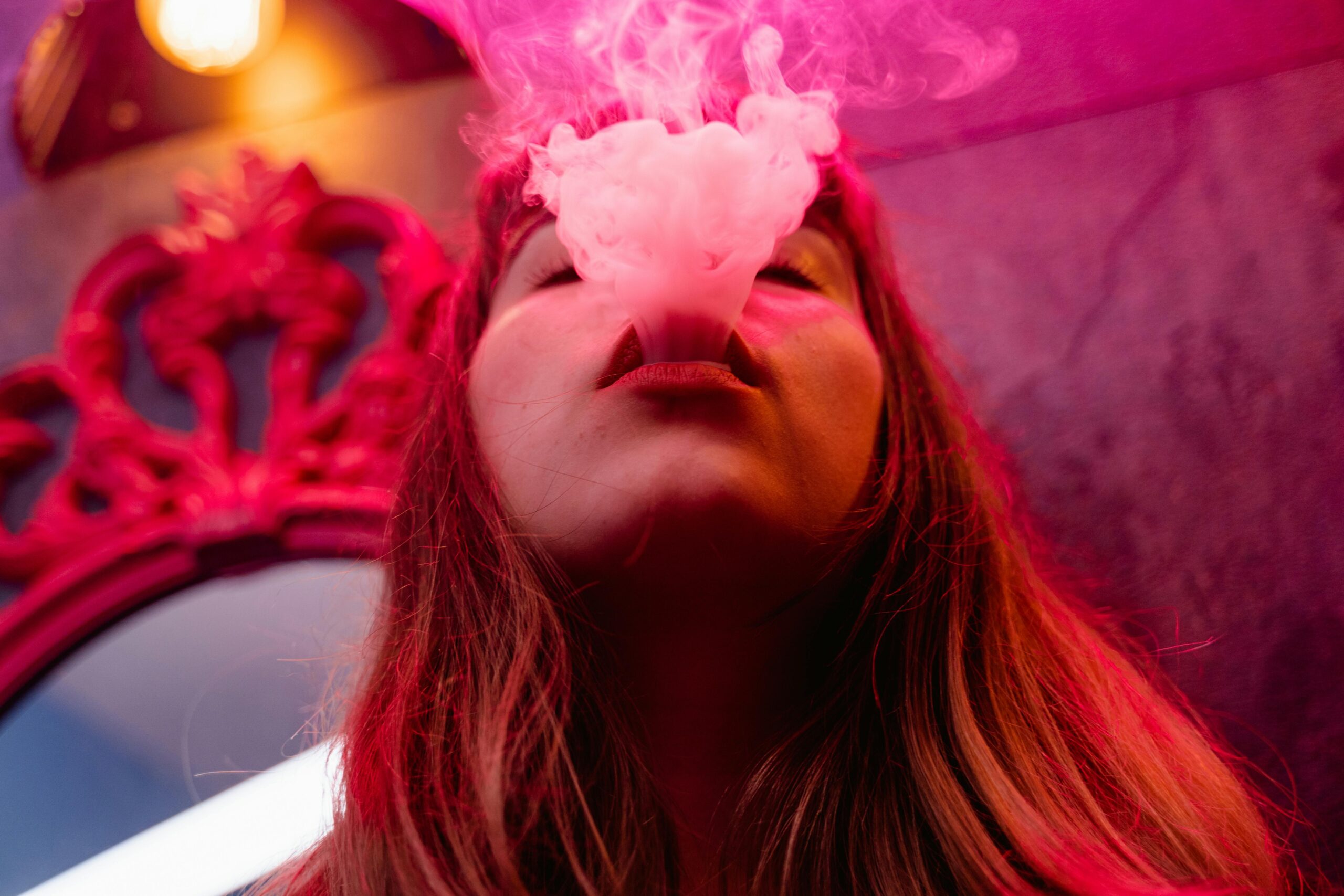The rising popularity of vaping as an alternative to traditional smoking has sparked discussions about its potential health impacts. Vaping involves inhaling vapour created by heating e-liquids in electronic devices, with these liquids often containing nicotine, flavourings and other chemical compounds.
A growing number of vapers have raised concerns about unexpected side effects, including a possible link to hair loss. This connection has become a topic of interest in vaping communities and health forums, with users reporting changes in their hair thickness and growth patterns after taking up vaping.
Factors Contributing to Hair Loss
Hair loss itself can stem from various factors:
- Genetic predisposition
- Hormonal changes
- Nutritional deficiencies
- Environmental factors
- Stress and lifestyle choices
The potential relationship between vaping and hair loss raises important questions about how the ingredients in e-cigarettes might affect our body’s natural processes. While some users report personal experiences suggesting a connection, the scientific community continues to investigate whether vaping could directly or indirectly influence hair health.
This article examines the possible mechanisms through which vaping might affect hair growth, explores user experiences and considers the current state of research on this concerning issue.
Understanding Vaping Products
Among the various products available for vaping it’s crucial to understand their ingredients to assess any potential health risks. For instance, certain e-liquids may contain substances that could impact overall health, including hair health.
Understanding the Potential Mechanisms Behind Vaping-Induced Hair Loss
Nicotine Effects on Hair Health
Nicotine present in vaping products acts as a vasoconstrictor, causing blood vessels to narrow and restrict blood flow throughout the body – including the scalp. This reduced blood circulation can significantly impact hair follicles, which require a steady supply of nutrients and oxygen for healthy growth. Research indicates that decreased blood flow to hair follicles can lead to:
- Weakened hair strands
- Slower hair growth rates
- Premature entry into the telogen (resting) phase
- Increased hair shedding
For instance, high nicotine concentration products could exacerbate these effects.
Chemical Exposure and Hair Thinning
E-liquids used in vaping devices contain various chemicals that might affect hair health:
- Propylene Glycol (PG): Known to cause dehydration, potentially leading to dry, brittle hair
- Vegetable Glycerine (VG): May impact protein synthesis necessary for hair growth
- Artificial Flavourings: Some compounds might interfere with cellular processes related to hair follicle function
- Heavy Metals: Trace amounts found in vapour could accumulate in the body, potentially affecting hair growth cycles
Studies suggest these chemicals might penetrate the skin barrier when exposed to vapour, potentially reaching hair follicles and disrupting normal growth patterns.
Hormonal Influences from Vaping
Vaping’s impact on hormonal balance presents another potential mechanism for hair loss. Research indicates that nicotine and other compounds in e-cigarettes might affect:
- Androgen Levels: Altered testosterone levels can influence hair growth patterns
- Cortisol Production: Increased stress hormone levels might trigger telogen effluvium
- Thyroid Function: Disrupted thyroid hormone production can lead to hair thinning
- Growth Factors: Reduced production of proteins essential for hair follicle development
Smoking vs Vaping: Impact on Hair Health
While vaping is often considered a safer alternative to smoking, both habits share similar mechanisms that might damage hair. In fact, research has shown that smoking has a direct harmful connection with hair loss.
| Mechanism | Smoking | Vaping |
|---|---|---|
| Blood Circulation Effects | Severe vasoconstriction, reduced oxygen delivery | Milder vasoconstriction, but still present |
| Chemical Exposure | Direct exposure to thousands of harmful compounds | Fewer chemicals, but still potentially harmful to hair follicles |
| Oxidative Stress | High levels of free radical damage | Lower levels, but still present |
Research suggests vaping might cause less immediate damage to hair compared to traditional smoking, but long-term effects remain under investigation. The varying concentrations of nicotine and
User Experiences and Research Gaps in Establishing a Link Between Vaping and Hair Loss
Social media platforms and vaping forums reveal numerous personal accounts from users reporting hair-related concerns. Many individuals share stories of experiencing noticeable hair thinning or increased shedding after taking up vaping. These reports often describe similar patterns:
- Gradual hair thinning around the crown area
- Increased hair fall during washing or brushing
- Changes in hair texture and strength
- Slower hair growth rates
A quick search through Reddit’s vaping communities uncovers multiple threads where users discuss their experiences with hair loss. One user wrote:
“Six months into vaping, I noticed my hair becoming thinner. My hairbrush collected more strands than usual and my once-thick hair started looking sparse.”
These anecdotal reports paint a concerning picture. Yet, the scientific community faces significant challenges in establishing concrete evidence:
Current Research Limitations
- Limited long-term studies focusing specifically on vaping’s effects on hair health
- Difficulty isolating vaping as the sole cause of hair loss
- Small sample sizes in existing studies
- Lack of standardised research methodologies
Areas Requiring Investigation
- Direct effects of e-liquid components on hair follicles
- Long-term impact of nicotine delivery through vaping on scalp health
- Potential differences between various vaping devices and their effects
- Role of individual susceptibility and genetic factors, including aspects detailed in this genetic study on hair loss
The scientific community acknowledges these gaps in research. Medical professionals stress the importance of conducting large-scale, controlled studies to understand the relationship between vaping and hair loss. Such research would need to account for various factors, including:
- Different e-liquid compositions
- Frequency and duration of vaping
- Individual health factors, which may include genetic predisposition to conditions like alopecia as noted in the aforementioned study
- Environmental influences that could interact with genetic factors related to hair loss
Until comprehensive research emerges, the connection between vaping and hair loss remains largely based on user experiences and preliminary findings.
Conclusion
The relationship between vaping and hair loss remains a complex topic without definitive scientific proof. Research suggests several potential ways in which vaping might affect hair health:
- Nicotine’s impact on blood circulation to hair follicles
- Chemical exposure from e-liquid components
- Possible hormonal disruptions affecting the hair growth cycle
These potential explanations are worth considering, but they need further scientific research to prove a direct cause-and-effect relationship. Most of the current evidence comes from personal accounts and theoretical links.
A balanced approach to maintaining healthy hair should take into account various factors:
- Genetic predisposition to hair loss
- Nutritional status and dietary habits
- Stress levels and lifestyle choices
- Environmental factors and overall health conditions
If you’re worried about how vaping might affect your hair, it’s best to talk to a healthcare professional. They can give you personalised advice based on your specific situation and help you identify other possible causes of hair loss.
As vaping becomes more popular, it’s important to conduct thorough scientific studies to understand its long-term effects on hair health. Until such research is available, users should stay informed about potential risks while also recognising the different factors that can influence hair health.
FAQs
Does vaping cause hair loss?
While some individuals report hair thinning or loss associated with vaping, there is currently no conclusive scientific proof that nicotine or chemicals in e-cigarettes directly cause hair loss. More research is needed to establish a definitive causal link.
How does nicotine in vaping products affect hair health?
Nicotine can impact blood flow to the scalp, which is crucial for healthy hair growth. Reduced circulation may potentially contribute to hair thinning or loss, although definitive evidence linking vaping nicotine to hair damage is still lacking.
Can chemicals in vaping liquids lead to hair thinning?
Exposure to various chemicals in vaping liquids may have harmful effects on hair health, possibly contributing to hair thinning or loss. However, comprehensive studies are required to understand the extent of these effects and confirm any direct association.
Does vaping influence hormonal balances related to hair growth?
Vaping could potentially affect hormonal balances that regulate hair growth cycles, which might impact hair shedding or thinning. Nonetheless, current research has not firmly established this connection, highlighting the need for further investigation.
How does the impact of vaping on hair compare to smoking?
Both vaping and smoking involve exposure to nicotine and other chemicals that can affect blood circulation and potentially damage hair fibres. While smoking’s detrimental effects on hair are better documented, the comparative impact of vaping remains less clear and requires more research.
What factors besides vaping should be considered when addressing hair loss?
Hair health can be influenced by genetics, overall lifestyle choices such as diet and stress levels and other environmental factors. It’s important to consider these alongside any potential effects from vaping when evaluating causes of hair loss.




